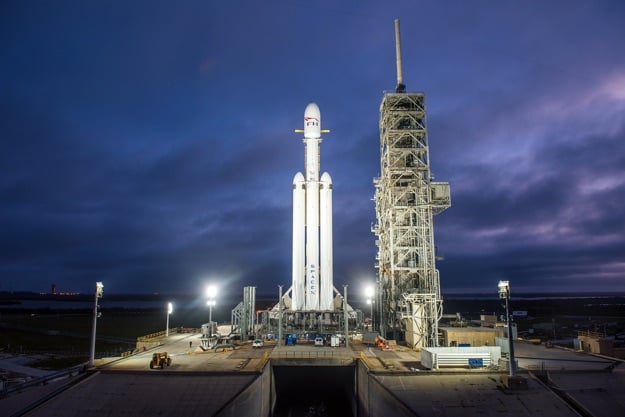SpaceX Falcon Heavy Rocket Test Fire Delayed Due To Government Shutdown

In order for SpaceX to accomplish static engines tests -- in which the Falcon Heavy fires its engines at full throttle while it is restrained on the launch pad -- the company needs support services from the US Air Force at the Kennedy Space Center (KSC). However, the government shutdown means that a large number of the people responsible for overseeing pad operations and launches are furloughed.
"Due to the shutdown removing key members of the civilian workforce, the 45th Space Wing will not be able to support commercial static fires taking place on KSC," said the US Air Force's 45th Space Wing in a statement yesterday. “Without our civilian workforce, the 45th SW is unable to support launch operations as well.”
In a statement to The Verge, SpaceX confirmed that the government shutdown not only affects Falcon Heavy, but also its future commercial and defense launch timetables. “[The shutdown] also impacts critical missions for our customers, including important international allies, scheduled to launch shortly from Cape Canaveral and Vandenberg Air Force Base, as well as upcoming missions this spring to resupply the International Space Station.”

After numerous delays, SpaceX most recently penciled in January for its Falcon Heavy static fire test, and the first actual test flight was scheduled to occur later this month. However, this 2+ day ongoing government shutdown threatens to at the very least delay the first official launch of Falcon Heavy until February (or later given SpaceX’s track record).
The first flight of Falcon Heavy, which even SpaceX CEO Elon Musk doesn't expect to be a complete success, will not have any critical customer cargo onboard. Instead, it contains a first-generation Tesla Roadster housed within its nose cone that will be put into orbit around Mars.

